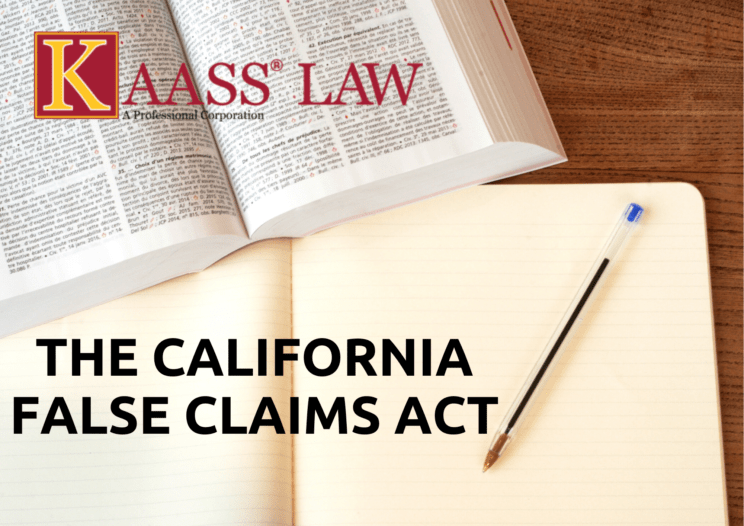What Is the California False Claims Act (CFCA)?
The California False Claims Act (CFCA) is a law which provides civil penalties for business entities or individuals who commit certain forms of theft, embezzlement or fraud with respect to state or local government funds. CFCA allows a public entity to recover damages from any entity or person that knowingly presents a false claim for any payment or approval.
Elements of Presenting a False Claim
According to CACI 4800, the plaintiff must be able to prove all the following elements to establish the claim:
- Defendant knowingly presented or caused to be presented a fraudulent or false claim to the public entity for payment or approval
- Defendant’s false or fraudulent claim was material to the public entity’s decision to pay out money to the defendant.
Violation of the California False Claims Act
Here is the list of some actions which constitute a violation CFCA
- Presenting a false claim for payment
- Using or making false or fraudulent statements regarding the false claim
- Conspiring to violate the California False Claims Act
- Delivering less than bargained for to the government
- Providing or making false receipts
- Making fraudulent purchases
- Misrepresenting to decrease an obligation to pay the government
What Is Considered to Be a Claim?
For purposes of CFCA, a “claim” means a request for money, services, or property that will be provided directly or indirectly by the California state government or a local government.
Knowingly Presenting a False or Fraudulent Claim
With respect to information about the claim, “knowingly “means that:
- Defendant had actual knowledge that the information in the claim was false
- Defendant acted in deliberate ignorance of the falsity or truth of the information
- Defendant acted in reckless disregard of the falsity or truth of the information
To establish the claim the plaintiff doesn’t have to prove the specific intent to defraud.
“Material” means that the claim had a tendency to influence, or was capable of influencing, the payment or receipt of money, services, property on the claim.
Inadvertent False Claims
The CFCA imposes an additional legal responsibility for reporting false claims if a person has inadvertently received a benefit from a false claim, such as an accidental overpayment that goes unreported.
Whistleblower Incentives
The California False Claims Act provides lucrative monetary incentives. In case the government doesn’t intervene in the claim, the plaintiff is statutorily entitled to 25-50% of the total damages, including attorney’s fees. If the government does intervene, the plaintiff will be entitled to at least 15-33% of the recovery.
Damages That Can Be Recovered According to the CFCA
In case the defendant is found guilty in violation of the California False Claims Act he will be required to pay:
- The triple amount of the loss that his actions caused to the government
- The total cost of the litigation to enforce the CFCA
- A civil penalty of between $5,000 $11,000 for each violation.
Under certain circumstances, such as self-reporting within 30 days or full cooperation, the penalties may be reduced.
Statute of Limitations for CFCA Claims
In California an action under the CFCA must be brought before the later of the following dates:
- 6 years after the CFCA violation happened
- 3 years after the plaintiff knew or reasonably should have known about the violation, or 10 years after it occurred

